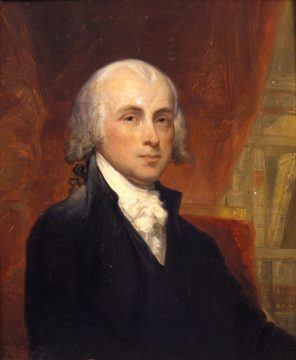Myron Magnet in City Journal (2014):
 In the greatest of the Federalist Papers, Number 10, James Madison explicitly pointed out the connection between liberty and inequality, and he explained why you can’t have the first without the second. Men formed governments, Madison believed (as did all the Founding Fathers), to safeguard rights that come from nature, not from government—rights to life, to liberty, and to the acquisition and ownership of property. Before we joined forces in society and chose an official cloaked with the authority to wield our collective power to restrain or punish violators of our natural rights, those rights were at constant risk of being trampled by someone stronger than we. Over time, though, those officials’ successors grew autocratic, and their governments overturned the very rights they were supposed to protect, creating a world as arbitrary as the inequality of the state of nature, in which the strongest took whatever he wanted, until someone still stronger came along.
In the greatest of the Federalist Papers, Number 10, James Madison explicitly pointed out the connection between liberty and inequality, and he explained why you can’t have the first without the second. Men formed governments, Madison believed (as did all the Founding Fathers), to safeguard rights that come from nature, not from government—rights to life, to liberty, and to the acquisition and ownership of property. Before we joined forces in society and chose an official cloaked with the authority to wield our collective power to restrain or punish violators of our natural rights, those rights were at constant risk of being trampled by someone stronger than we. Over time, though, those officials’ successors grew autocratic, and their governments overturned the very rights they were supposed to protect, creating a world as arbitrary as the inequality of the state of nature, in which the strongest took whatever he wanted, until someone still stronger came along.
In response, Americans—understanding that “kings are the servants, not the proprietors of the people,” as Jefferson snarled—fired their king and created a democratic republic. Under its safeguard of our equal right to liberty, each of us, Madison saw, will employ his different talents, drive, and energy, to follow his own individual dream of happiness, with a wide variety of successes and failures. Most notably, Federalist 10 pointed out, “From the protection of different and unequal faculties of acquiring property, the possession of different degrees and kinds of property immediately results.” That inequality would be a sign of the new nation’s success, not failure. It would mean that people were really free.
More here.
